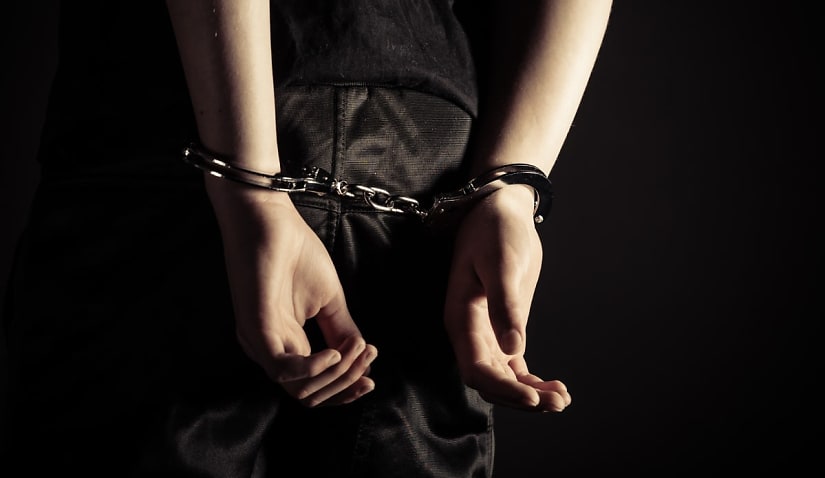Barristers, bar associations, and other legal bodies have continued their criticism of the new NSW bail laws, which include a new bail test that will reportedly end up with more children in custody.

As part of its $26.2 million youth justice package, the NSW government has amended the Bail Act 2013 to include a “temporary additional bail test” for offenders between the ages of 14 and 18 who committed a serious break-and-enter or motor vehicle theft while on bail.
These “rushed” reforms, NSW Bar Association president Dr Ruth Higgins SC said, are inconsistent with evidence that supporting young people, rather than detaining them, is more effective at reducing reoffending.
“The association is gravely concerned at the introduction of legislation that will result in greater incarceration rates of vulnerable children, which risks normalising criminal associations, undermining development, and producing more reoffending,” she said.
“The legislation introduces a novel test ⎯ ‘a high degree of confidence’ ⎯ that does not appear in any other legislation in New South Wales. The result will be that children are treated in a way that is harsher and more onerous than the treatment of adults.”
Barrister Arna Delle-Vergini echoed these concerns and said the new bail laws were “out of step” with nationwide reforms.
“I can’t think of any other area of criminal law where children are given harsher treatment than adults. It’s counterintuitive and flies in the face of evidence-based research indicating children who are incarcerated are more likely to offend again, not less likely,” she told Lawyers Weekly.
“Locking young people up in the hope that it will result in fewer children entering the criminal justice system is staggeringly simplistic and out of step with a trend in law reforms Australia-wide that aim to protect children, not place them at greater risk than they already are.”
The NSW Law Society has also expressed its disappointment with the new bail laws – and president Brett McGrath warned that evidence-based and well-considered reform was ignored by the amendment.
“Tightening the test for bail will result in more children being sent into custody,” McGrath said in a statement.
“In circumstances where youth justice centres are often many hours from child defendants’ families and communities, this change has the potential to do a great deal more harm than good.”
NSW Labor Lawyers has also penned an open letter urging the State Parliamentary Labor Party (SPLP) to reconsider the Bill and “direct attention to measures that will actually reduce the incidence of criminality in regional communities in the long term”.
“The effect of the new reforms will be to detain young people en masse given the unprecedented high bar for granting bail. It is a Band-Aid solution, likely to lead to the incarceration of particularly vulnerable groups in our society, which will further entrench criminality in regional communities and strain our criminal justice and prison system,” the letter stated.
“While the reforms come with promises of safer communities, the effect will be a short-term sugar hit for regional communities at the expense of long-term safety. This Bill represents a conflict between best intentions, which we know the SPLP has for regional communities, and practical outcomes, which will not be achieved by this proposed solution.”
Further, more than half of all children charged by NSW Police are Aboriginal, despite making up less than 4 per cent of the population – something Higgins said was of increased concern in light of the new bail laws.
“Of still greater concern is the likely disproportionate impact upon the incarceration rates of Aboriginal children in New South Wales. This will undermine the New South Wales Government’s ability to reach ‘Closing the Gap’ targets. According to the New South Wales Bureau of Crime Statistics and Research, the number of Aboriginal young people on remand increased by over 84 per cent from September 2021 to September 2023,” she said.
“The allocation of $26.2 million for various programs to prevent crime and support young people is to be welcomed. However, the majority of this funding will only benefit Moree, while the proposed legislative reforms will apply statewide. In attempting to respond to community concerns about juvenile crime in regional New South Wales, the Government has produced a precipitous policy that risks undermining the valuable youth programs that it is funding.”
The Aboriginal Legal Service NSW/ACT praised the open letter from NSW Labor Lawyers and chief executive Karly Warner said the passing of these laws marked the beginning of a major campaign.
"The Aboriginal Legal Service welcomes the advocacy of Labor lawyers who know these new laws will be a disaster for regional NSW and for the Labor Party. This internal opposition shows that while the Bill has passed, the fight to rectify these dangerous laws is far from over,” she said.
“We are drawing a line in the sand. We cannot accept an Australia that puts children in jail instead of evidence-based policy that actually makes communities safer. Time will show that these laws will increase crime and make communities more dangerous. We won’t stop until this betrayal of vulnerable children and of Closing the Gap is overturned and replaced with the solutions that actually make a difference.
“This is the beginning, not the end, of our advocacy.”

Lauren is the commercial content writer within Momentum Media’s professional services suite, including Lawyers Weekly, Accountants Daily and HR Leader, focusing primarily on commercial and client content, features and ebooks. Prior to joining Lawyers Weekly, she worked as a trade journalist for media and travel industry publications. Born in England, Lauren enjoys trying new bars and restaurants, attending music festivals and travelling.